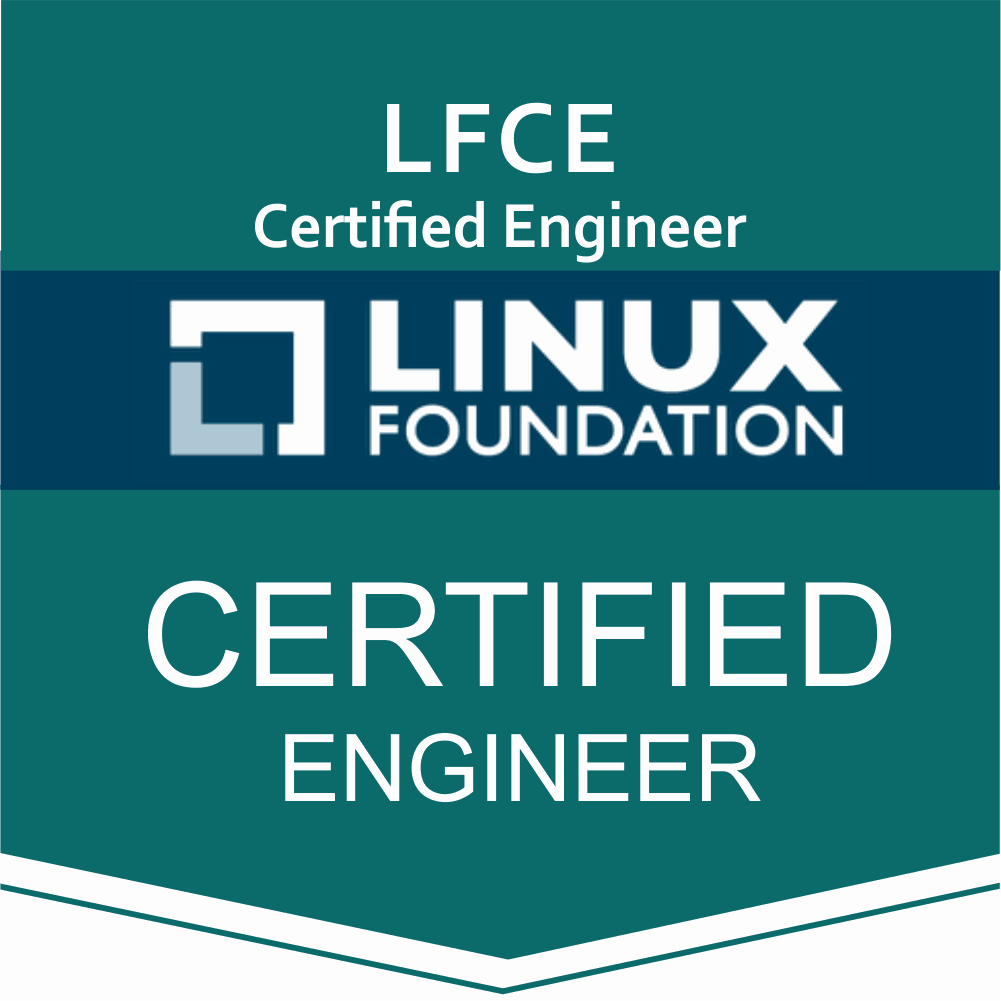Linux Foundation Certified Engineer (LFCE)

Linux Foundation Certified Engineer (LFCE) Exam Voucher
The LFCE certification ensures candidates are equipped to handle complex administrative and engineering responsibilities in Linux environments, demonstrating the ability to design, implement, and maintain reliable and secure infrastructure systems.
Certification Name: Linux Foundation Certified Engineer (LFCE)
Administered By: The Linux Foundation
Exam Format: Online, proctored, performance-based exam
Duration: 2 hours
Languages: Primarily English
Prerequisites: None officially required, but strong Linux system administration skills and LFCS certification are recommended
Exam Objectives:
The LFCE exam is designed to validate advanced Linux system administration and engineering skills, focusing on the ability to design and implement system architecture and services in a production environment. The exam emphasizes hands-on tasks that reflect real-world job scenarios for experienced Linux professionals.
Essential Commands (5%): Demonstrates proficiency in command-line operations, text manipulation, and working with archives and file systems.
Operation of Running Systems (18%): Covers process management, service operations, startup configuration, and system performance monitoring.
User and Group Management (10%): Involves account creation, management, and authentication methods including PAM and sudo configurations.
Networking (15%): Focuses on static and dynamic IP configurations, DNS services, firewall rules, and secure remote administration.
Service Configuration (17%): Involves setting up and securing network services such as web, database, file sharing, and SMTP servers.
Storage Management (10%): Covers LVM configuration, storage device mounting, swap space, and RAID setup.
System Design and Deployment (25%): Tests ability to plan, implement, and manage enterprise-scale Linux systems with an emphasis on automation and best practices.
Platform Choices: Candidates can choose their preferred Linux distribution, typically Ubuntu or CentOS, to complete the exam tasks in a real-time shell environment.
Please contact us for any queries via phone or our contact form. We will be happy to answer your questions.
Ferndale,
2194 South Africa
Tel: +2711-781 8014 (Johannesburg)
+2721-020-0111 (Cape Town)
ZA
Jumping Bean Contact Form!